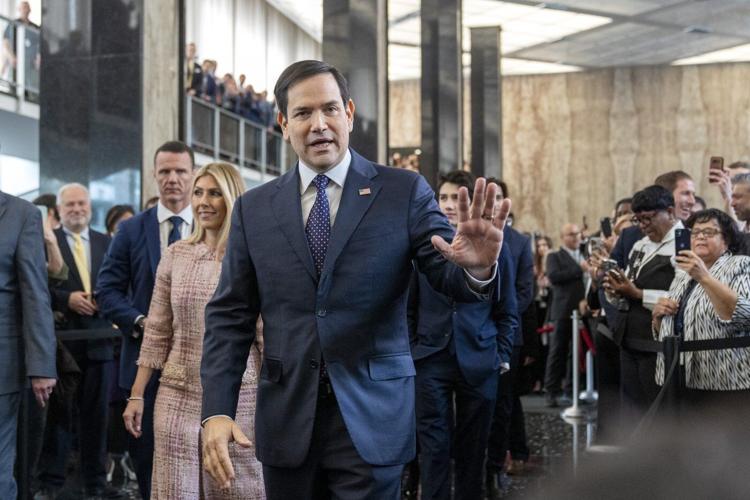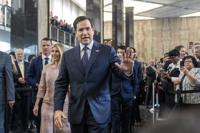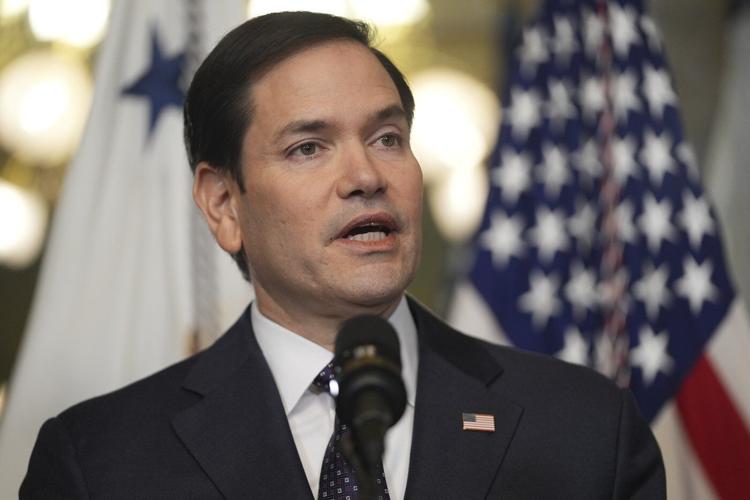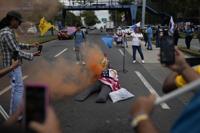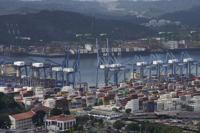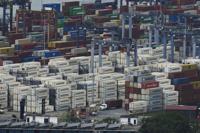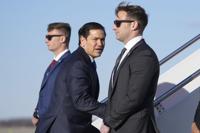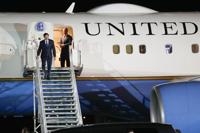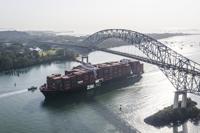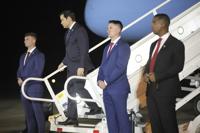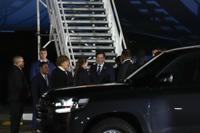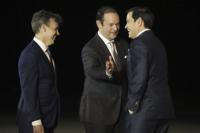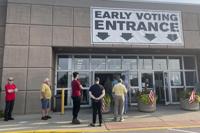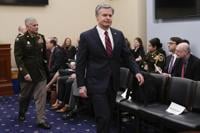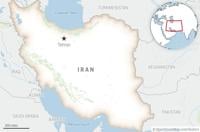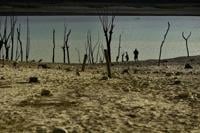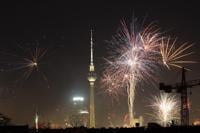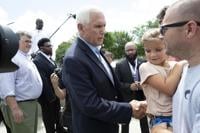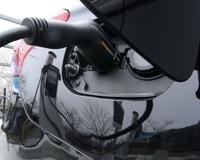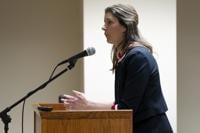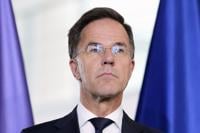PANAMA CITY (AP) — Secretary of State Marco Rubio is on his first foreign trip in office, arriving in Central America on Saturday to press President Donald Trump's top priority — curbing illegal immigration — and to bring the message that the U.S. wants to reclaim control over the Panama Canal despite intense resistance from regional leaders.
It's an unusual destination for the maiden voyage of America’s top diplomat, whose predecessors have generally favored Europe or Asia for their initial outings. It reflects not only the personal interest that Rubio — the first Hispanic to hold the nation’s most senior Cabinet post — has in the region but also the Trump administration’s intent to focus much of its close to home.
“It’s no accident that my first trip abroad as secretary of state will keep me in the hemisphere,” Rubio wrote in The Wall Street Journal on Friday.
Limiting immigration and fighting narcotics smuggling are major elements of that effort, but another key priority will be in the Western Hemisphere, topped by reasserting U.S. control over the Panama Canal. The American-built canal was turned over to the Panamanians in 1999 and they object strongly to Trump's demand to hand it back.
Mass migration, drugs and hostile policies pursued by Cuba, Nicaragua and Venezuela have wreaked havoc, Rubio said in the Journal opinion piece. "All the while, the Chinese Communist Party uses diplomatic and economic leverage — such as at the Panama Canal — to oppose the U.S. and turn sovereign nations into vassal states.”
Indeed, Rubio's first stop on the five-nation tour Saturday is Panama, whose president, José Raúl Mulino, says there will be no negotiation with the United States over ownership of the canal. He said he hoped Rubio’s visit would instead focus on shared interests like migration and combating drug trafficking.
“It’s impossible, I can’t negotiate,” Mulino said Thursday. "The canal belongs to Panama.”
Yet Rubio said he will make clear Trump's intent. In an interview Thursday with SiriusXM host Megyn Kelly, he said Trump's desire to is driven by legitimate national security interests stemming from growing concerns about Chinese activity and influence in Latin America.
“We’re going to address that topic,” he said. “The president’s been pretty clear he wants to administer the canal again. Obviously, the Panamanians are not big fans of that idea. That message has been brought very clear.”
Chinese investments in ports and other infrastructure and facilities at both the Pacific and Caribbean ends of the canal are a cause for major concern, leaving Panama and the critical shipping route vulnerable to China, he said.
Rubio added that “if China wanted to obstruct traffic in the Panama Canal, they could,” and that would be a violation of the 1977 treaty signed by former President Jimmy Carter under which the U.S. later ceded control.
Despite Mulino's rejection of any negotiation over ownership, some believe Panama may be open to a compromise under which canal operations on both sides are taken away from the Hong Kong-based Hutchison Ports company that was given a 25-year no-bid extension to run them. An audit into the suitability of that extension is already under way and could lead to a rebidding process.
What is unclear is whether Trump would accept the transfer of the concession to an American or European firm as meeting his demands, which appear to cover more than just operations.
“In some ways, Trump is pushing on an open door,” said Ryan Berg, director of the Americas program at the Center for Strategic and International Studies, a Washington think tank. “But it will depend on how his red lines are defined.”
“There's been a lot of heavy rhetoric and it will be up Rubio to clarify it,” Berg said, adding that some kind of compromise was possible “but we’ll have to see if he’s really serious about taking it back. If that’s the case then nothing short of that will satisfy him.”
Rubio arrived in Panama on Saturday for meetings the following day with Mulino and the canal administrator. He will then travel to El Salvador, Costa Rica, Guatemala and the Dominican Republic.
His arrival comes just a day after the U.S. resumed visa processing at its embassy in Bogota, Colombia, which had been shut down Sunday after the Colombian government refused to accept two planeloads of Colombian deportees from the United States.
Previous secretaries of state have often traveled abroad with so-called “deliverables” — assistance packages, new cooperation initiatives and the like — that they can announce at each stop. However, such as with Colombia, Rubio may only be able to bring limited relief from a that Trump ordered pending a review of all programs.
In Latin America, such programs have generally focused on policing, counternarcotics operations and efforts to stem illegal migration. Rubio has made provisions for certain programs offering life-saving assistance to be exempted from the funding pause, and waiver applications for programs in several of the countries he will be visiting are under review.
Among the countries for which waivers for certain programs have been submitted are Panama, Costa Rica, the Dominican Republic and its neighbor, Haiti. Although Rubio will not be traveling to Haiti, the State Department has already allowed some $41 million in support of an international peacekeeping force there to go ahead.

